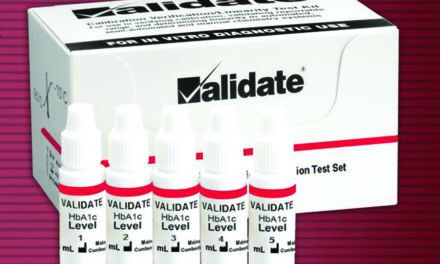Atherotech Inc announces the addition of apolipoprotein A (apoAI) to its VAP® Cholesterol Test. The VAP (Vertical Auto Profile) Test is the only single cholesterol test that routinely reports apoAI, apoB, and the apoB/apoAI ratio.
With the addition of this new marker, the VAP Test now reports apoAI and the apoB/apoAI ratio, increasing its clinical utility in the assessment of risk for heart disease, diabetes, and other cardiovascular diseases. The new, clinically validated heart disease risk marker is included with the VAP Cholesterol Test at no added cost.
"The new ratio gives physicians and their patients a single, easy-to-understand number that shows the balance between good and bad cholesterol particles and helps determine whether a person’s ‘high HDL’ is really protective," said Atherotech Chief Medical Officer James Ehrlich, MD.
ApoAI is the main protein component of protective HDL cholesterol while apolipoprotein BI00 (apoB) particles are the main component of atherogenic (bad) LDL cholesterol. In general, the lower the apoB/apoAI value, the lower your risk for heart disease. A ratio of 1 to 2 is considered low risk, while a ratio approaching 1 to 1 would be considered high risk, and anything over that — where the small LDL particles would dominate — would be very high risk.
ApoAI and Diabetes
The apoB/apoAI ratio is significantly higher in people with metabolic syndrome, which is present in nearly a quarter of the US population and is a precursor to diabetes. In the Collaborative Atorvastatin Diabetes (CARDS) study of diabetic patients, the apoB/apoAI ratio predicted cardiovascular disease and coronary heart disease events and total mortality better than other lipoprotein variables. The apoB/apoAI ratio is also an independent predictor of insulin resistance in non-diabetic subjects.
People with a family history or an existing condition of diabetes, high blood pressure or heart disease – or who are already taking cholesterol-lowering medication – are candidates for the comprehensive VAP Test. In addition, those who don’t score within the desirable ranges of the standard cholesterol test (ie those with Triglycerides > 150, HDL < 40, LDL > 130, Total Cholesterol > 200) should also opt for the more detailed VAP Test.
The VAP Test reports 20 separate components of blood cholesterol as opposed to four in a standard cholesterol test. It can identify a far greater number of lipid abnormalities (the #1 risk factor for heart disease) than the standard cholesterol test. The VAP Test also identifies markers for metabolic syndrome, a precursor for diabetes.
The VAP Test is available nationwide and covered by most insurance providers, including Medicare and Medicaid. For more information call (877) 901-8510 or visit the test’s Web site.




